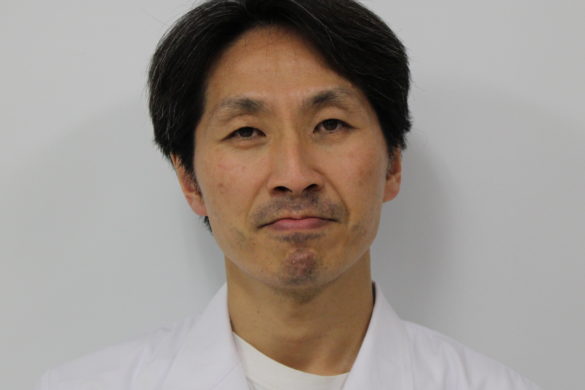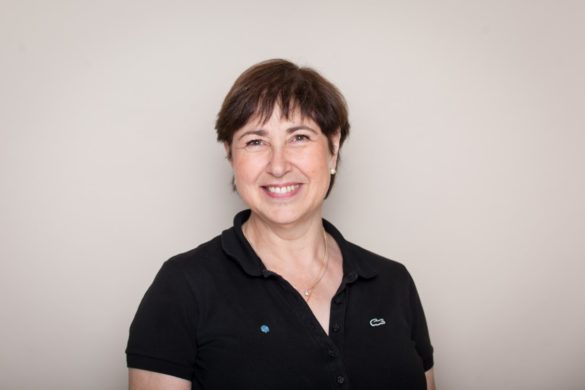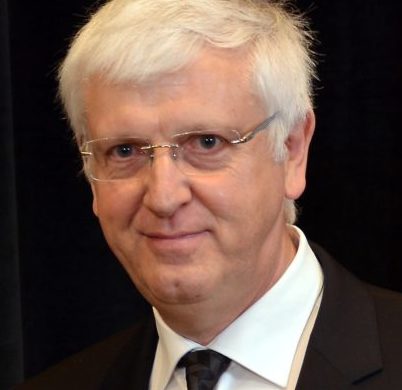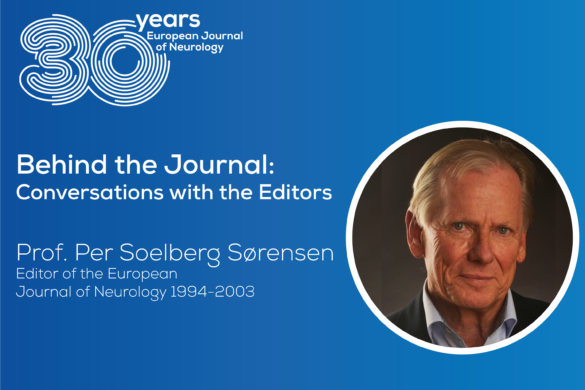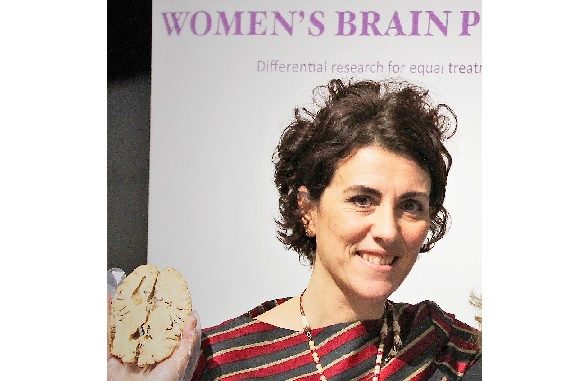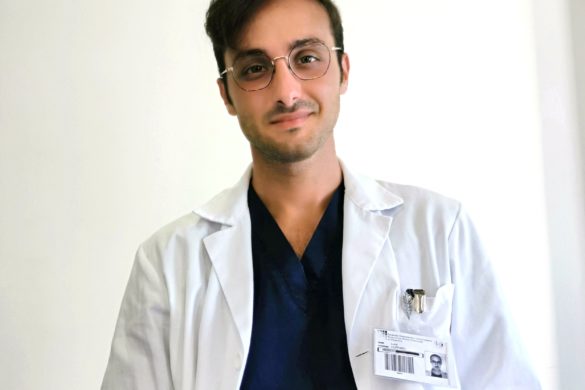As in the previous year, Neuropenews asked EAN committee members, panel chairs, speakers, … which session one should not miss at the upcoming congress in Berlin, June 2015. Please find their answers below …
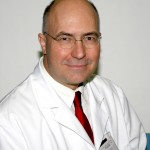 David Vodušek, Chair of the EAN Liaison Committee
David Vodušek, Chair of the EAN Liaison Committee
Symposium 5: “Expanding fields in neurology”, Monday, June 22, 08:30-10:30
My ‘favourite session’ at the 1st EAN Congress in Berlin 2015 is the Symposium 5 – Expanding fields in neurology. This session (and similarly, the session: Hot topics in neurological sciences on Sunday, 2015-06-21, 08.30-10.30) represent what is in my mind most valuable in the EAN Congress for a European neurologist: the broad spectrum of contemporary neurology in state of the art reviews by top experts in one place at one time! (Of course, in addition, specific “subtopics” such as epilepsy, movement disorders, neuromuscular disorders, MS etc. are also there to be sampled by the general neurologist or the subspecialist wanting to update the “other neurology”). The particular session mentioned will highlight the fact that neurologists need to recognise and appreciate also the developments in neurogeriatrics, neurorehabilitation, neuro-intensive care, and the emergency neurology. Neurology is expanding not only because of achievements of neuroscientific research in general, but also because of the recognition of the need to provide care to the neurological patient at all the stages, from the emergency room to neurorehabilititation and chronic care of elderly with neurological disorders. Furthermore, neurologists need to get active in all these fields… Where else but at the EAN Congress to discuss such issues?
Rick Wansink, Speaker at Focused Workshop 12 “RNA-related neurological disorders and RNA interference in therapy”
Focused Workshop 12: “RNA-related neurological disorders and RNA interference in therapy”, Sunday, June 21, 11:00-12:30
Join us and learn more about the role of RNA in neurological disease and corresponding molecular strategies for future therapy.
Patrick Aubourg, Speaker at Focused Workshop 21 “Adult-onset leukodystrophies”
Symposium 4: “Preclinical Alzheimer’s disease”, Monday, June 22, 08:30-10:30
I will not miss this session.
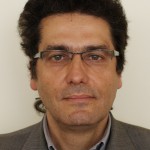 Massimo Filippi, Co-Chair of the Subspecialty Scientific Panel Neuroimaging
Massimo Filippi, Co-Chair of the Subspecialty Scientific Panel Neuroimaging
Symposium 4: “Preclinical Alzheimer’s disease”, Monday, June 22, 08:30-10:30
Symposium 7: “Multiple sclerosis therapy moving forward/where is the truth? Hopes and hazards”, Tuesday, June 23, 08:00-10:00
Teaching Course 11: “Imaging in clinical decision making – Level 1”, Sunday, June 21, 14:45-18:15
Interactive Session 2: “Pitfalls in neurological diagnosis – common misinterpretations”, Sunday, June 21, 11:00-12:30
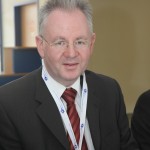 Alexandre Bisdorff, Member of the EAN Scientific Committee
Alexandre Bisdorff, Member of the EAN Scientific Committee
EFNA-EAN Public Awareness Day: Understanding Headache and Sleep Disorders”, Sunday, June 21, 15:00-17:30
It is a difficult task to pick only one session not to be missed, as the offer of high quality events is high, and one often regrets collisions of one or more interesting events. I have not missed the public awareness events in most of the past EFNS congresses, and am happy that EAN carries on with this tradition. It is important for a neurologist to make the bridge between the understanding of the diseases he deals with from the medical-scientific point of view with impact they have on the function and emotion of the persons who have to live with them. Although these session will on a whole not teach me anything new on the scientific aspects, they still helped me to evolve in my “soft skills” on how to deal with my patients.
Alexander Tsiskaridze, Institutional Delegate of the Georgian Society of Neurologists
Symposium 1: “EAN-ESO Symposium: Spontaneous intracerebral haemorrhage”, Saturday, June 20, 08:30-10:30
I will not miss this session because: (a) stroke is my favourite topic not only from scientific but also from practical standpoint; (b) the session is organised in cooperation with the European Stroke Organization (ESO) where I serve as a member of the board of directors; (c) the lecture topics are well chosen; (d) the speakers are prominent experts in the field.
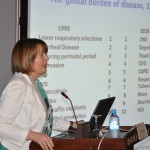 Valeria Caso, Member of the EAN Programme Committee
Valeria Caso, Member of the EAN Programme Committee
Focused Workshop 10: “Unresolved management issues in the secondary prevention of ischemic stroke”, Sunday, June 21, 11:00-12:30
I will not miss this session on “Unresolved management issues in the secondary prevention of ischemic stroke” for the following reasons:
1. The 1st lecture on “When and how to start anticoagulation after an acute ischemic stroke due to atrial fibrillation?” will face the burning issue on how to balance the benefit of early treatment with anticoagulation therapy reducing risk of stroke recurrence and the risk of bleeding complications associated with this treatment.
2. The 2nd lecture on “The management of stroke patients with carotid stenosis and coronary heart disease” will show the risk and benefits of carotid surgery/stenting or medical therapy in patients with coronary disease.
3. The 3rd lecture “What to do in stroke patients with presumed cardiac right to left shunt?” will give an update on interventional, medical and surgical options in patients with right to left shunts.
4. The quality of the speakers.
Mads Ravnborg, Institutional Delegate of the Danish Neurological Society
Focused Workshop 1: “Innovative approach to MS therapy – antigen induced immune tolerance”, Saturday, June 20, 11:00-12:30
Although MS patients of today may profit from a series of immunomodulatory pharmaceutical agents the intriguing perspectives of long lasting manipulation of the immune system in the treatment of MS are very attractive. This is the workshop of the MS treatment of tomorrow!
Barry Seemungal, Speaker at Interactive Session “Update on vestibular disorders”
Focused Workshop 2: “Migraine biomarkers: facts, fiction & future”, Saturday, June 20, 11:00-12:30
Focused Workshop 13: “Neurostimulation in paroxysmal neurological disorders”, Sunday, June 21, 11:00-12:30
Sensory perception and its abnormalities remains the enigmatic face of neuroscience and clinical neurology. Over the past century our movement disorder colleagues have used the moving image to document their cases. In contrast, researchers and clinicians involved in sensory disorders, from pain syndromes to dizziness, are challenged by the difficulty in displaying the clinical syndrome. When appropriate we must turn to philosophers such as Kant who understood that sensory perception arises from the collision between sensory experience and the processing of these signals by central circuits. This understanding begins to explain how the observable (nerve conduction studies or vestibular ocular reflex testing) may not explain the unobservable (pain, dizziness).
The session “Migraine biomarkers” asks – How do we probe sensory perception of and its surrogate markers? A complementary session – “Neurostimulation in paroxysmal neurological disorders” aims to modulate brain function including sensory perception (as well as aberrant electrical brain activity involved in epilepsy).
These two sessions promise to stimulate and elevate our understanding of this interface between sensory neuroscience and philosophy and move our understanding toward 21st Century science. But in keeping with modern neurology, we aim not simply to describe and understand, but to treat and improve the lives of our patients. I will not be missing these two sessions!
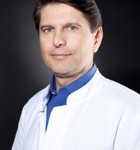 Michael Strupp, Member of the Subspecialty Scientific Panel Neuro-ophthalmology and –otology
Michael Strupp, Member of the Subspecialty Scientific Panel Neuro-ophthalmology and –otology
Symposium 7: “Multiple sclerosis therapy moving forward/where is the truth? Hopes and hazards”, Tuesday, June 23, 08:00-10:00
Over the last 10 years a plethora of treatment options have been developed, evaluated in large clinical trials and are now strongly promoted by the different pharmaceutical companies. What is the role of speakers in such a situation? Based on my experience while listening to many presentations, I have the impression that conflicts of interest cannot be ruled out. In other words, depending on the sponsor, the description of the pros and cons of the various agents may vary a lot. For clinicians and for the well-informed community of patients with MS it has become more and more difficult to find out which of these many agents is appropriate for each individual patient. Head-to-head comparisons of the different drugs by state-of-the art trials have to be performed and evaluated by independent observers. These are the topics in which I am most interested in this symposium.
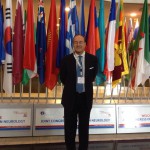 Antonio Toscano, Member of the EAN Scientific Committee
Antonio Toscano, Member of the EAN Scientific Committee
Symposium 3: “Modern molecular genetics in clinical myology”, Saturday, June 20, 08:30-10:30
I think that this symposium is very relevant for the European Neurological community because today, in view of timely diagnosis and new clinical trials regarding rare diseases as the muscle disorders, we all should be aware about the meaning of a correct molecular genetic evaluation of patients with these diseases in an attempt to better address them and their families
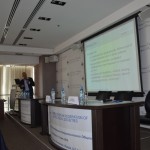 Peter Berlit, Member of the Subspecialty Scientific Panel Stroke, Neuropathies, and General Neurology
Peter Berlit, Member of the Subspecialty Scientific Panel Stroke, Neuropathies, and General Neurology
Plenary Symposium: “Hot topics in neurological sciences”, Sunday, June 21, 08:30-10:30
A bouquet of important themes for the clinical neurologist: How will biomarkers help us in Multiple Sclerosis and epilepsy treatment? Hypo- and hyperdopaminergic dysfunction plays an important role for the understanding of treatment effects and side effects in our Parkinson patients. If a prophylaxis for dementia should work, it will be immunisation strategies.




